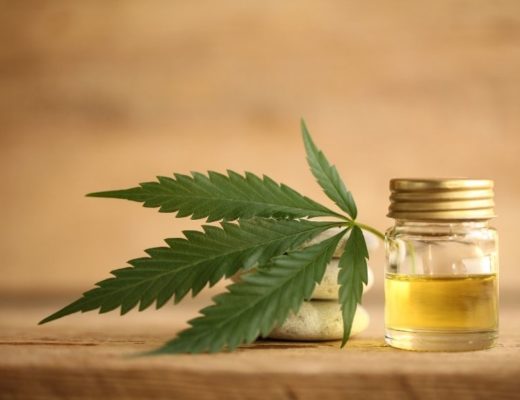CBD is everywhere these days, in the news, on ads both in person and online, and even in a display at your local gas station. Whole clinics have popped up claiming CBD-based treatment and products as the cure-all for whatever might ail you.
You see people buying CBD pills to help them sleep, getting CBD treats to help calm their anxious pets and CBD oil to consume as an alternative to heavy meds.
More and more people are deciding that the serious side effects that come along with most medicines are not worth the risk and are seeking alternatives.
Enter CBD: an alternative medicine with little known side effects.
So naturally, parents who are hesitant to put their ADHD child on stimulants, have sought out CBD as an option to treat their child’s symptoms.
This leads us to ask, what can CBD’s role in ADHD be and is it the alternative people are hoping for?
What is ADHD?
ADHD, also known as attention-deficit/hyperactivity disorder, is a brain disorder marked by an ongoing pattern of inattention and/or hyperactivity-impulsivity that interferes with functioning or development. (Health, n.d.)
There are three different types of ADHD:
- Inattentive – getting distracted, having poor concentration and organizational skills
- Hyperactive-impulsive – interrupting, taking risks
- Combination – never seeming to slow down, talking and fidgeting, difficulties staying on task. (Erica Roth, 2018)
ADHD is different in everyone, and the symptoms can vary.
The process to be diagnosed is long and involves multiple doctors and a diagnostic evaluation where the patient must show at least six of the nine major symptoms.
If you are being diagnosed as a child and are of school age, the child’s teacher will also have to fill out a questionnaire that is used to help reach a diagnosis.
If you are trying to get a diagnosis as an adult it is much harder. You must first ask your primary doctor about it, next that primary will refer you to a psychiatrist who will then be able to perform the diagnostic tests on you, give you the diagnosis and prescribe you medication.
No matter if someone has officially labeled you with the disorder or not, if you have ADHD, you have it for life. It does not go away but it can be managed with the help of medicine, techniques, or a combination of both.
When it comes to ADHD medications the most common forms are:
- Stimulant – Stimulant medications target a neurotransmitter (brain chemical) called dopamine, which plays a key role in motivation. It also helps to control movement and emotional responses. (Understood Team, n.d.) Stimulants are the most prescribed type of ADHD meds.
- Non-Stimulant – non-stimulant medications work by increasing brain activity of norepinephrine. This is a neurotransmitter that, like dopamine, is linked to attention. (Understood Team, n.d.) This form of medicine is used most often in children and adults who do not respond to stimulants or experience adverse side effects.
Some side effects of ADHD medications are:
- Sleep problems
- Decreased appetite
- Weight loss
- Increased Blood Pressure
- Dizziness
- Headaches
- Stomachaches
- Irritability
- Depression
- Anxiety
Rare side effects:
- Heart problems
- Tics
- Personality changes
When the stimulant medication is abused, it can lead to addiction. However, that requires heavy abuse and is not common.
What is CBD?
Cannabidiol, also known as CBD, is derived from the hemp plant which is a cousin of the marijuana plant. While CBD is a component of marijuana, by itself it does not cause a high because it does not activate the same regions in the brain as THC.
CBD works by interacting with our body’s endocannabinoid system which is a regulatory system made up of naturally occurring cannabis-like molecules. These endocannabinoids work like neurotransmitters, sending messages through the body to help maintain homeostasis. (Kosecki, 2019) CBD interacts with these receptors, triggering positive effects.
Though more research is needed, scientists believe that CBD encourages the body to produce more of its own endocannabinoids, which may help reduced anxiety, pain, and inflammation. According to the WHO organization,
“ In humans, CBD exhibits no effects indicative of any abuse or dependence potential…. To date, there is no evidence of public health related problems associated with the use of pure CBD.”
Organization, 2017
If that is the case, and CBD truly does help with anxiety, pain and inflammation, more people will likely want to replace their medications that have harsh side effects for CBD.
Before you go out and purchase that bottle of CBD at your local gas station its important to mention that there are different types of CBD; medical grade and over the counter.
Medical grade CBD is a full-spectrum hemp extract with a high concentration of cannabidiol (CBD). It also contains terpenes and other micronutrients and, in most cases, they have MCT (medium-chain triglyceride) as the carrier oil. (We The People Hemp, 2019)
Over-the-counter CBD is still derived from the hemp plant but does not contain as high of a concentration and can not contain any form of THC.
In a nutshell- Medical-grade CBD products have a higher level of quality and concentration than over the counter CBD and over-the-counter CBD products are not regulated. Therefore, you truly do not know what is in them or how much CBD they contain.
There is currently only one CBD product that is approved by the FDA, Epidiolex. Epidiolex is a prescription drug given to people suffering from rare and severe seizure conditions.
How Can CBD Help People With ADHD?
There is not a lot of evidence showing CBD as beneficial in managing ADHD… yet.
However, there is evidence showing CBD’s effectiveness in helping with anxiety, digestion, pain, inflammation, and mood regulation which are some of the common symptoms of ADHD.
Though medically documented evidence is lacking in this department there some smaller studies and people’s personal experiences that have shown positive outcomes when using CBD products.
People who take CBD usually take it in the form of an oil or tincture, but it also comes in edibles, beverages, and topical applications.
For ADHD, the best method seems to be oil or tinctures. There are not any guidelines on how much to take but it is advised that you start out with a small amount each day and gradually increase the dosage over time. Most CBD brands suggest you start with 10 to 20 milligrams a day. For children, however, it could be a lower dosage. (Chen, 2021) When taking CBD in the form of an oil, use the dropper to place the oil under the tongue for 60-90 seconds to ensure full absorption. (Wood, 2021)
If you decide to take a leap of faith and try it out know that there is no true consensus on if it is safe for children. Please consult with your child’s pediatrician before giving them any CBD product.
Also, it is important to note that while CBD can be found widely online, it is not currently legal in every state and region. If you are considering CBD, be aware of the laws in your state and local area before buying any product. To learn if your state has legalized CBD check out the CBD Awareness Project’s 2021 CBD Laws by State.
In conclusion, what is CBD’s role in ADHD? It is hard to tell but small studies and personal experiences are showing that CBD can have a positive effect in some of the symptoms that plague people dealing with ADHD.
I do not know about you but I’m excited to see what the future has in store for CBD and the many conditions it can help treat.





No Comments